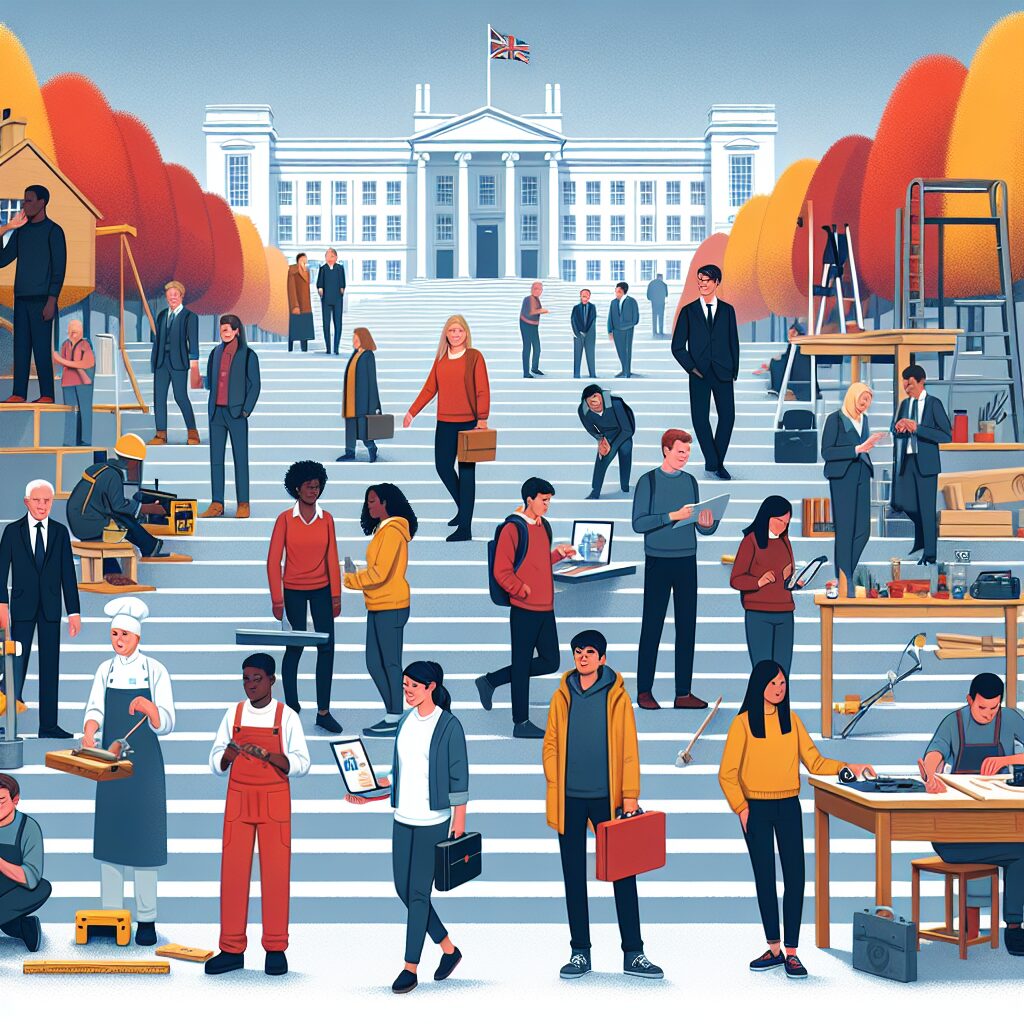
Revolutionizing Education: Preparing for the Future of Learning

Education’s Critical Moment: Are We Ready for the Challenge?
Have you noticed the stir in the education landscape recently? I’m not just talking about new curriculum updates or shiny tech in classrooms; I’m talking about something that could shape our future—how we cater to the needs of those 16 to 18-year-olds who are now required to stay in education. It’s a bold move, but if we don’t step up our game, we’re in for a bumpy ride.
When the participation age shifted from 16 to 18, it should have been a watershed moment. In theory, it was an opportunity ripe for innovation and forward-thinking leadership. Yet, the reality of this change has been disappointing, to say the least. Instead of preparing for an influx of eager young learners, we’ve found ourselves ill-equipped and scrambling, watching as students are crammed into makeshift classrooms rather than flourishing in vibrant, engaging environments.
What Went Wrong in Our Education System?
It’s heartbreaking, isn’t it? Instead of investing in resources and infrastructure, many colleges were caught napping. The increase in young people needing further education should have ushered in a new age of planning and strategy. Instead, we find ourselves seeing students in rented office spaces or hotel meeting rooms, hardly the nurturing environments they deserve.
So, what happened? It seems there was little foresight to address this major shift, and now the weight has fallen squarely on the shoulders of schools. Schools are tasked with ensuring every pupil has a clear post-16 destination, while many are still grappling with their own issues, and understandably so. With the government calling for all young people to pursue further education or training, one must ask—are we setting them up to thrive, or merely survive?
What Happens Next? Time for a New Approach
This moment calls for clear accountability and robust support for our young people. There’s a pressing need for collaboration between schools, colleges, businesses, and even local governments. Herein lies an opportunity not just to react, but to create a united front that ensures our young learners are equipped not just with knowledge but also with skills for real-world challenges.
But it cannot stop there. We must engage with students themselves, listening to their needs and perspectives. They are not just passive receivers of educational content. They are active participants in shaping their futures. A personal insight I hold dear is that when you create a nurturing environment and invite young voices into the conversation, you ignite passion and motivation in ways that sterile classrooms never could. We’ve got to break free from the outdated “one-size-fits-all” model.
How Can We Support Our Young People Better?
So, where do we start? Here are a few ideas that spring to mind:
- Invest in Resources: Let’s pour energy into creating dynamic learning environments that encourage creativity and critical thinking.
- Engage with Businesses: Schools and companies need to collaborate to build pathways into local industries. Mentorship opportunities can make all the difference.
- Flexible Curriculum: Offer varied academic and vocational routes. It’s essential to acknowledge that not everyone thrives in a traditional classroom.
- Listen to Students: Regular feedback from students can guide changes that genuinely meet their needs.
The time for action is now. We are at a pivotal moment in education, one where the next generation is keen to learn but reflects a wider system that needs a good shake-up. By standing together and prioritising our young people, we can make a difference.
Ready for a Change?
As we ponder these essential questions, let’s remember that the future of education is in our hands. Are we willing to reshape this landscape, or are we content to let it stagnate? Every effort counts, and every voice matters, especially those of our students.
So, what’s your take? How do you think we can truly support our young learners in their transitional journey? I’d love to hear your thoughts.





